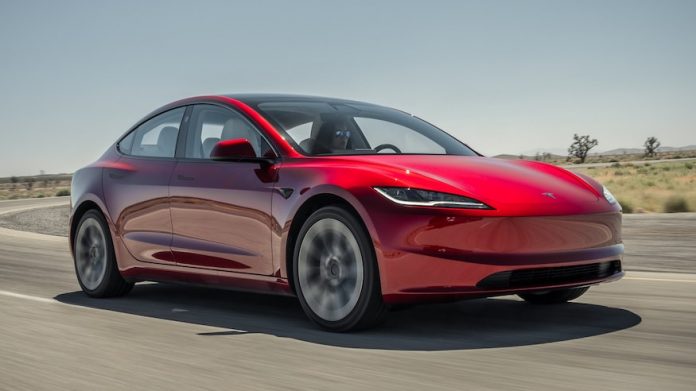New domestic sourcing requirements for electric vehicle batteries are now in effect following their reveal by the Treasury Department in the fourth quarter of 2023, leaving many formerly qualified electrified models ineligible for tax incentives.
Electric vehicle tax credits, worth up to $7,500, first took effect in January of last year following the passing of the Biden Administration’s Inflation Reduction Act in 2022, incentivizing consumers to buy qualifying battery-powered models. According to the White House’s policies, electrified models were required to source a certain percentage of their components and raw materials from U.S. suppliers to be eligible for incentives in an effort to reduce American dependence on Chinese manufacturing.
Under the new guidelines, automakers must dial back their relationship with China-owned or governed businesses and rely instead on domestic supply chains more heavily to continue providing consumers with the opportunity to earn government rebates.
At the end of 2023, the number of electric vehicles qualifying for tax credits was 43, according to Reuters. Now that the revised rules are in place, that number is believed to have tumbled to 19, although some manufacturers have yet to confirm whether their models have been impacted by the change.
Depending on the ratio of domestically sourced components to imported within these remaining models, electric vehicle buyers may qualify for either $7,500 or $3,750. Some of the initially eligible products confirmed to have lost their qualification in 2024 include the Nissan Leaf and Tesla’s Model 3 and Cybertruck, although the latter automaker has said incentives will return later in the year.
Next year, electric vehicle tax credit requirements will again tighten, leaving automakers with one year to meet and surpass the Treasury Department’s current sourcing quotas.
List of Qualifying EVs:
| Make | Model | Tax Rebate Amount Today |
| Chevrolet | Bolt EV | $7,500 |
| Chevrolet | Bolt EUV | $7,500 |
| Chrysler | Pacifica Plug-in Hybrid (PHEV) | $7,500 |
| Ford | Escape PHEV | $3,750 |
| Ford | F-150 Lightning (extended-range battery) | $7,500 |
| Ford | F-150 Lightning (standard-range battery) | $7,500 |
| Jeep | Grand Cherokee 4xe PHEV | $3,750 |
| Jeep | Wrangler 4xe PHEV | $3,750 |
| Lincoln | Corsair Grand Touring PHEV | $3,750 |
| Rivian | R1S Dual-Motor Large Battery | $3,750 |
| Rivian | R1S Quad-Motor Large Battery | $3,750 |
| Rivian | R1T Dual-Motor Large Battery | $3,750 |
| Rivian | R1T Dual-Motor Max Battery | $3,750 |
| Rivian | R1T Quad-Motor Large Battery | $3,750 |
| Tesla | Model 3 Performance | $7,500 |
| Tesla | Model X Long Range | $7,500 |
| Tesla | Model Y All-Wheel Drive | $7,500 |
| Tesla | Model Y Performance | $7,500 |
| Tesla | Model Y Rear-Wheel Drive | $7,500 |



